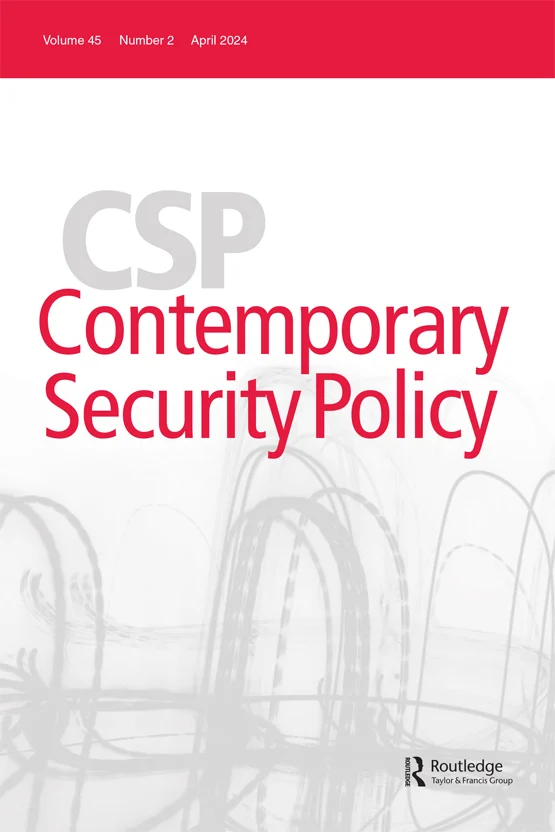要吸取的教训?俄罗斯入侵乌克兰后德国的Zeitenwinde与欧洲安全
IF 5
1区 社会学
Q1 INTERNATIONAL RELATIONS
引用次数: 19
摘要
摘要在德国,俄罗斯对乌克兰的战争被广泛认为是一场“Zeitenwinde”,这是一个破坏关键外交政策信念的分水岭时刻。尽管有越来越多的证据与之相矛盾,但德国精英此前未能调整关于俄罗斯和使用武力的核心信念,因为这些信念不仅深深植根于基本上没有争议的身份建构中,而且还塑造了经济利益的定义,这反过来又使概念调整的成本更高。此外,德国在后冷战时期极其有利的地缘政治形势意味着该国可以不学习。尽管“Zeitenwende”将引发重大变革,但目前尚不清楚德国人现在将吸取哪些教训,以及这种适应将走多远。考虑到德国在欧洲的关键地位及其之前在塑造欧洲和跨大西洋对俄政策方面的作用,这些学习过程的结果将对新兴的欧洲安全秩序产生重大影响。本文章由计算机程序翻译,如有差异,请以英文原文为准。
Lessons (to be) learned? Germany’s Zeitenwende and European security after the Russian invasion of Ukraine
ABSTRACT In Germany, the Russian war on Ukraine is widely perceived as a “Zeitenwende,” a watershed moment undermining key foreign policy beliefs. Despite mounting evidence contradicting them, German elites previously failed to adapt core beliefs regarding Russia and the use of force because these beliefs were not only deeply embedded in largely uncontested identity constructions but also shaped the definition of economic interests, which in turn made ideational adaptation more costly. Moreover, Germany’s extraordinarily beneficial geopolitical situation in the post-Cold War era meant that the country could afford not to learn. Although the “Zeitenwende” will trigger significant change, it is unclear which lessons exactly Germans will now be learning and how far that adaptation will go. Given Germany’s key position in Europe and its previous role in shaping the European and transatlantic policy toward Russia, the results of these learning processes will significantly shape the emerging European security order.
求助全文
通过发布文献求助,成功后即可免费获取论文全文。
去求助
来源期刊

Contemporary Security Policy
Multiple-
CiteScore
14.60
自引率
6.80%
发文量
22
期刊介绍:
One of the oldest peer-reviewed journals in international conflict and security, Contemporary Security Policy promotes theoretically-based research on policy problems of armed conflict, intervention and conflict resolution. Since it first appeared in 1980, CSP has established its unique place as a meeting ground for research at the nexus of theory and policy.
Spanning the gap between academic and policy approaches, CSP offers policy analysts a place to pursue fundamental issues, and academic writers a venue for addressing policy. Major fields of concern include:
War and armed conflict
Peacekeeping
Conflict resolution
Arms control and disarmament
Defense policy
Strategic culture
International institutions.
CSP is committed to a broad range of intellectual perspectives. Articles promote new analytical approaches, iconoclastic interpretations and previously overlooked perspectives. Its pages encourage novel contributions and outlooks, not particular methodologies or policy goals. Its geographical scope is worldwide and includes security challenges in Europe, Africa, the Middle-East and Asia. Authors are encouraged to examine established priorities in innovative ways and to apply traditional methods to new problems.
 求助内容:
求助内容: 应助结果提醒方式:
应助结果提醒方式:


